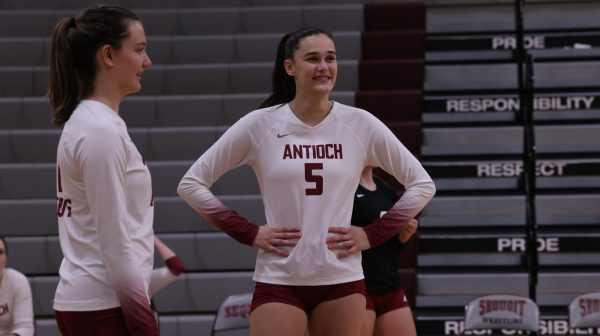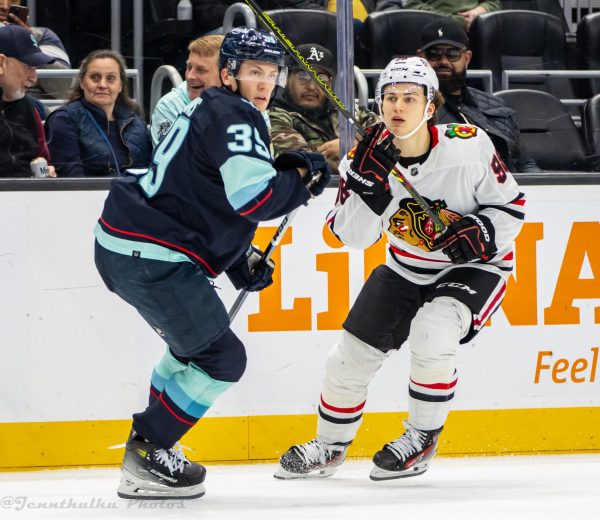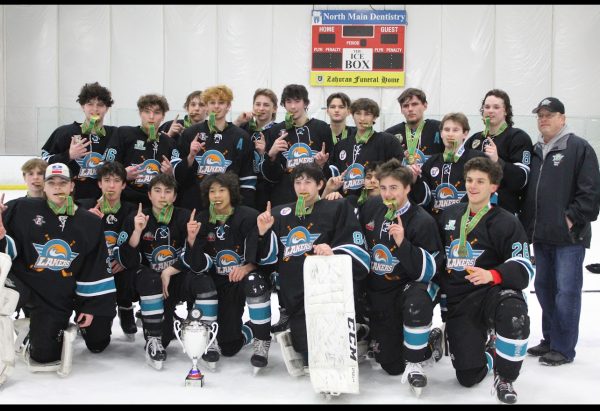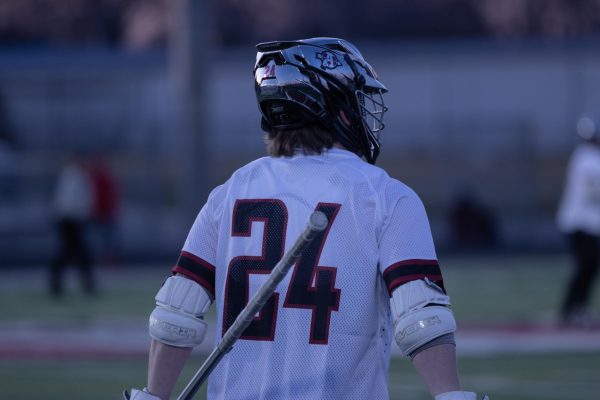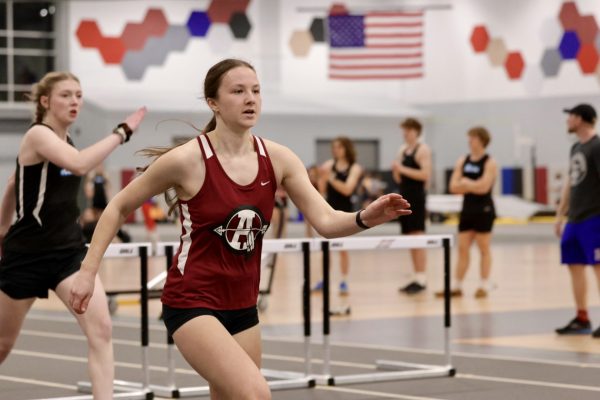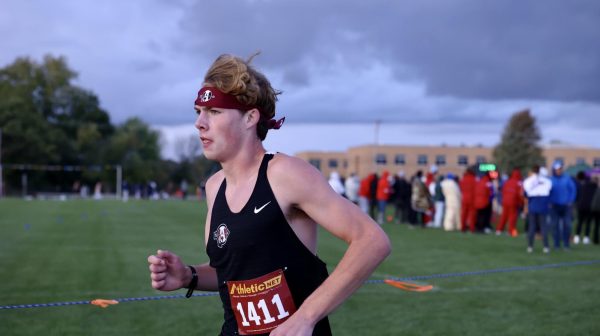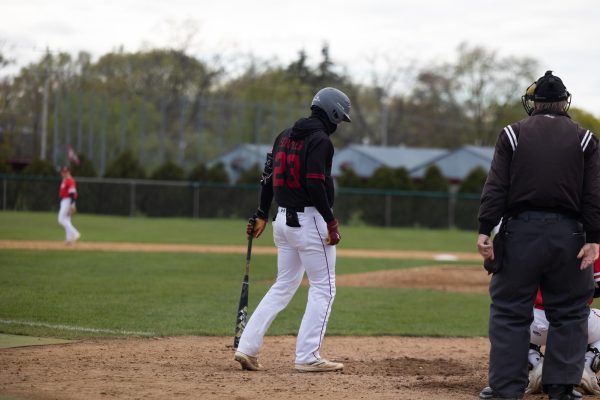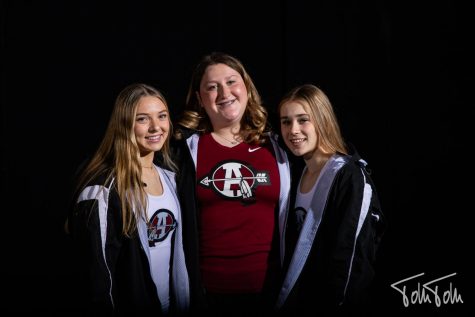Strapping Up The Headgear
Jake Gross follows in his father’s footsteps on his wrestling career.
For senior varsity wrestler Jacob Gross, wrestling has been a part of his life for a long time. Since he was five years old to be exact.
Gross wanted to be just like his father. His dad wrestled when he was younger, which made Gross want to follow in his footsteps. So, like his father, he decided to strap on the headgear and step into the circle.
He’s come a long way since he started, getting stronger physically and mentally each year with his skills increasing each time he gets on a mat. In 12 years, Gross sees his greatest accomplishment being when he placed seventh as the Asics Nationals. While there, not only did Gross beat two state champions, but he also beat one of them by pinning him in 26 seconds.
According to Gross, most coaches grew up wrestling and have had ten plus years of coaching experience, both as a wrestler and a coach, which should help them to motivate and push their athletes beyond their limits to make them better, to show compassion when their athletes are down, and to critique them to improve their technique. Growing up, his favorite coach was his dad because his dad has all of these exceptional coaching qualities. His dad is the reason he started wrestling, the reason he has improved, and the reason why he still does well today.
Gross stands by the phrase practice makes perfect, because he feels the better it is in practice, the better it is in a match.
Wrestling is a sport where technique cannot be overlooked. Gross has learned many skills and different moves throughout his wrestling career. Practice is a good way to keep that technique as best as it can be. Gross and his teammates spend about 15 hours practicing during the school week, each with their own way to train. Gross likes to break down and focus on every part of a move and help his teammates to do the same. Doing that helps him make sure every part is as perfect as it can be, and that his teammates are prepared for success.
Sometimes in a sport, something extraordinary has to happen for the win. Gross did exactly that in what he considers to be one of his most nail-biting moments in his wrestling career. Last year at the 2015 IHSA sectionals Gross was wrestling for third place in the consolation bracket. If he won, he would be on his way to state; if he lost, his season would be over. Gross was down by four points in the third period with 30 seconds left. With his season in jeopardy, Gross knew he would have to do something quick, and he did. He tried a move called “the flying squirrel.” A move where you jump over an opponent with your arms wrapped around his waist to throw him on his back. Gross was successful in attempting this on his opponent and won his match.
Overcoming obstacles is a common thing in sports with one of the most common obstacles being injuries. Gross has wrestled through broken fingers, dislocated shoulders, concussions, a bruised spine, and much more. He believes that in wrestling you need to push past your injuries until you are physically unable to push any more. He also believes that that his team’s constant determination to work through injuries makes wrestling much different from any other sports.
Being so passionate about a sport like wrestling can create dreams and desires for one to want to achieve. One day, Gross hopes he can get a scholarship for wrestling.


